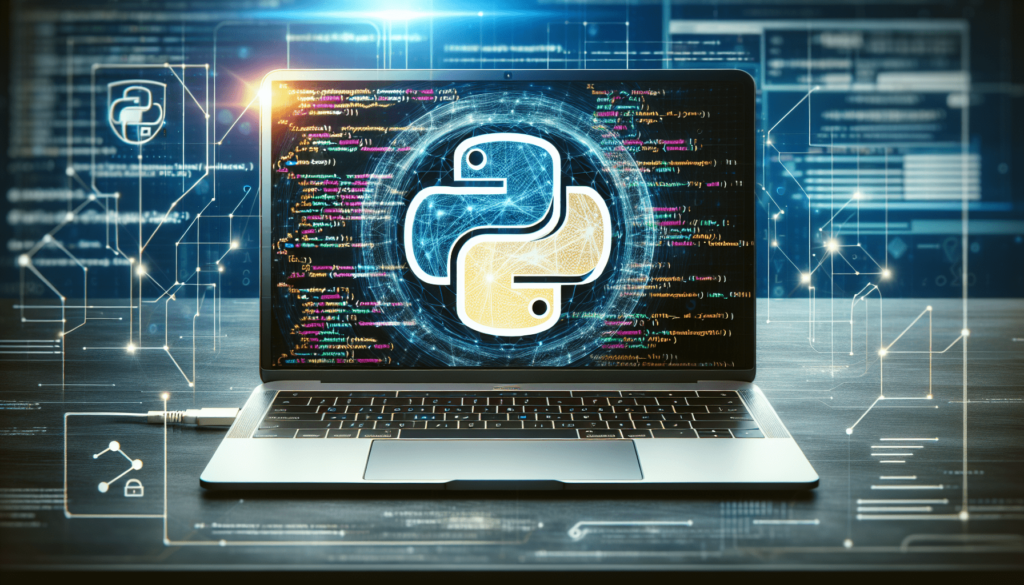Which programming language is mostly used for AI?
The Rise of Python in AI Development
When it comes to artificial intelligence (AI) development, one programming language stands out from the rest – Python. Its versatility, ease of use, and vast library of pre-built modules make it the go-to language for AI projects. In this article, we will explore why Python has become the preferred choice for AI development and how you can leverage its power to build cutting-edge AI applications.
Why Python?
Python has gained immense popularity in the field of AI due to its simplicity and readability. Unlike other programming languages like Java or C++, Python’s syntax is clean and easy to understand, making it an ideal choice for both beginners and experienced developers. Additionally, Python’s extensive library support, particularly for data manipulation and machine learning, makes it the perfect language for AI development.
Python’s Rich Ecosystem
One of the key reasons why Python is the preferred language for AI development is its rich ecosystem of libraries and frameworks. From TensorFlow and PyTorch for deep learning to scikit-learn and NumPy for data manipulation, Python offers a wide range of tools that simplify AI development. These libraries not only reduce the amount of code you need to write but also provide efficient solutions for complex AI algorithms.
Easy Integration with Other Technologies
Python’s versatility extends beyond AI development, as it can easily integrate with other technologies commonly used in AI projects. Whether you are working with big data tools like Apache Spark or web frameworks like Django, Python seamlessly integrates with these technologies, making it a versatile language for AI applications. This ease of integration allows developers to work on end-to-end AI projects without worrying about compatibility issues.
Community Support
Another advantage of using Python for AI development is the strong community support behind the language. With a vibrant community of developers, data scientists, and AI enthusiasts, Python offers a wealth of resources, tutorials, and forums where you can seek help and guidance for your AI projects. Whether you are a beginner looking to learn the basics of AI or an experienced developer tackling complex AI algorithms, Python’s community support ensures that you have the resources you need to succeed.
Getting Started with Python for AI Development
Now that you understand why Python is the go-to language for AI development, let’s discuss how you can get started with Python for AI projects. Whether you are a beginner or an experienced developer, Python provides the tools and resources you need to build powerful AI applications.
Setting Up Your Python Environment
The first step in getting started with Python for AI development is to set up your Python environment. You can either install Python directly on your machine or use popular Python distributions like Anaconda, which come bundled with essential libraries and tools for AI development. Once you have your Python environment set up, you can start writing your first AI program using Python.
Learning Python Basics
If you are new to Python, it is essential to familiarize yourself with the basics of the language before diving into AI development. Python’s syntax is straightforward and easy to learn, making it accessible to beginners. There are plenty of online resources, tutorials, and courses that can help you master the fundamentals of Python programming, so you can start building AI applications with confidence.
Exploring Python Libraries for AI
Python’s vast library support is one of its most significant strengths when it comes to AI development. Some of the popular libraries and frameworks for AI in Python include:
| Library/Framework | Description |
|---|---|
| TensorFlow | An open-source machine learning framework |
| PyTorch | Another popular deep learning framework |
| scikit-learn | A library for machine learning and data analysis |
| NumPy | A library for numerical computing |
| pandas | A library for data manipulation and analysis |
By exploring these libraries and understanding their capabilities, you can leverage their power to build sophisticated AI applications. Whether you are working on image recognition, natural language processing, or predictive analytics, Python’s libraries have got you covered.
Hands-On Projects and Tutorials
One of the best ways to learn Python for AI development is through hands-on projects and tutorials. Whether you are building a simple chatbot or a complex neural network, working on real-world projects helps you apply your Python skills in a practical setting. There are plenty of online platforms like Kaggle, Coursera, and Udacity that offer AI projects and tutorials to help you sharpen your Python skills and master AI development.

Python vs. Other Programming Languages for AI
While Python is the go-to language for AI development, there are other programming languages commonly used in AI projects. Let’s compare Python with some of these languages to understand why Python has emerged as the top choice for AI development.
Python vs. Java
Java is another popular programming language used in AI development, thanks to its scalability and robustness. However, compared to Python, Java has a steeper learning curve and requires more code to accomplish similar tasks. Python’s simplicity and readability make it a more suitable choice for AI projects, especially for beginners and data scientists who value productivity and ease of use.
Python vs. C++
C++ is known for its speed and efficiency, making it a preferred language for AI applications that require high performance. While C++ is more performant than Python, it comes at the cost of increased complexity and longer development times. Python’s strong library support and ease of use make it a better choice for rapid prototyping and experimentation in AI development.
Python vs. R
R is another programming language commonly used in AI projects, particularly in statistical analysis and data visualization. While R excels in statistical computing, Python offers a broader range of tools and libraries for AI development. Python’s flexibility, extensive library support, and ease of integration with other technologies give it an edge over R when it comes to building robust and scalable AI applications.
Conclusion
In conclusion, Python has established itself as the go-to programming language for AI development, thanks to its simplicity, versatility, and rich ecosystem of libraries and frameworks. Whether you are a beginner learning the basics of AI or an experienced developer building complex AI algorithms, Python provides the tools and resources you need to succeed in the field of artificial intelligence. By leveraging Python’s power and capabilities, you can unlock endless possibilities in AI development and create innovative solutions that push the boundaries of what is possible in AI. So, what are you waiting for? Dive into Python today and start building the AI applications of tomorrow!

